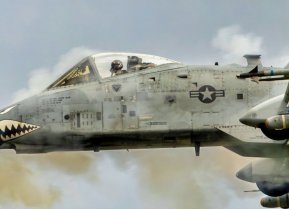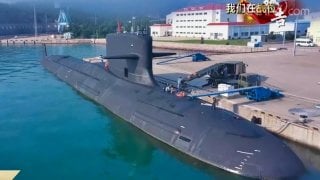Type 093B: China Is Building a Fleet of Guided Missiles Submarines
The introduction of the Type 093B signifies China’s strategic intent to deploy submarines as a counter to aircraft carriers and as a platform for land attacks, enabling strikes from significantly greater distances.
Summary: The introduction of the Type 093B signifies China’s strategic intent to deploy submarines as a counter to aircraft carriers and as a platform for land attacks, enabling strikes from significantly greater distances. This capability could alter the strategic balance in the Indo-Pacific region, as the Pentagon report suggests that up to three Type 093Bs could be operational within a year. China’s submarine fleet, now totaling 65 vessels, reflects the nation's continued naval expansion and the emphasis on enhancing its undersea warfare capabilities.
China Has a New SSGN Missile Submarine Like the U.S. Navy
China’s navy recently launched its first nuclear-powered guided missile submarine. The Pentagon reported the development in a 2023 assessment of China’s military meant to provide U.S. forces with land and sea attack options in the event of a future conflict.
The Pentagon report, published last October, confirmed that a Type 093B submarine was launched. The vessel relies on a nuclear reactor for power. According to the Pentagon, the Chinese navy will soon “have the ability to conduct long-range precision strikes against land targets from its submarine and surface combatants using land-attack cruise missiles, notably enhancing (China’s) power projection capability,” Reuters reported.
What is the Type 093B?
The Type 093B is an SSGN, a conventionally armed missile submarine. The Soviet Union first developed this type during the Cold War to target U.S. aircraft carriers. The U.S. Navy responded with its own version when it converted ballistic missile submarines to carry large payloads of land-attack Tomahawk cruise missiles. These missiles are precision weapons with a long range. They typically operate at low altitudes, sometimes skimming the surface of the sea – in contrast with ballistic weapons, which fly at high altitudes.
The Type 093B measures 351 feet long, with a 36-foot beam and a 24-foot draft. The vessel displaces over 6,000 pounds when submerged and can reach speeds of 30 knots. With a pressurized water reactor, the Type 093B can operate indefinitely and with unlimited range, significantly enhancing China’s scope of naval influence.
The Type 093B sails with 100 crew members. They operate a variety of sophisticated equipment, including Type 359 radar, hull-mounted sonar, flank array sonar, passive intercept array sonar, and towed array sonar. For armament, the Type 093B is equipped with six 533-meter torpedo tubes capable of launching a variety of ordnance, including the Yu-3, Yu-4, and Yu-6 torpedoes, or the YJ-82 anti-ship cruise missile.
“Some analysts say the PLA navy will be eager to deploy the vessels as an extra weapon against aircraft carriers as well as a land-attack platform, allowing strikes from a far greater range than its fleets of smaller attack submarines,” Reuters reported.
The Pentagon report indicated that as many as three of the new Type 093Bs could be at sea within the next year – suggesting that China’s historic naval expansion continues. China’s submarine fleet has swelled to 65 vessels, and it looks set to continue growing.
Understandably, the U.S. is concerned with Chinese submarine expansion, fearing that submarines could be used to target U.S. carriers.
“The effort to track China’s submarines at sea is one of the core drivers of increased deployments and contingency planning by the U.S. Navy and other militaries across the Indo-Pacific region,” Reuters reported.
About the Author: Harrison Kass
Harrison Kass is a defense and national security writer with over 1,000 total pieces on issues involving global affairs. An attorney, pilot, guitarist, and minor pro hockey player, Harrison joined the US Air Force as a Pilot Trainee but was medically discharged. Harrison holds a BA from Lake Forest College, a JD from the University of Oregon, and an MA from New York University. Harrison listens to Dokken.


